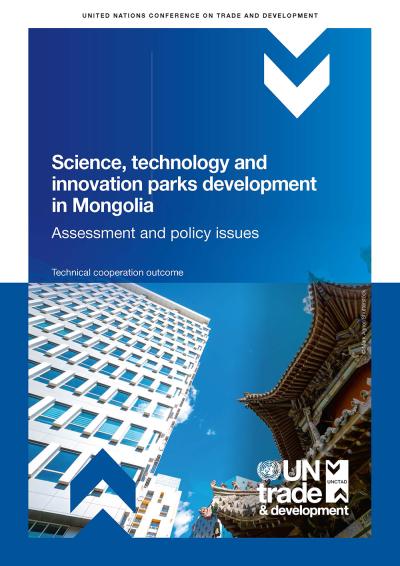
Mongolia's economy remains heavily dependent on natural resources, making economic diversification a priority for long-term sustainable development.
Science, technology and innovation parks have emerged as a strategic policy instrument to foster innovation, strengthen linkages between academia and industry and support the growth of technology-based enterprises. However, the effective implementation and impact of STI parks depend on the broader STI policy environment, the national innovation system and industry capabilities.
This report examines the state of the science, technology and innovation policy environment and STI parks in Mongolia.
It highlights challenges, gaps and opportunities for the further development of STI parks as instruments for socio-economic development.
The report is structured as follows:
- Section II provides an overview of STI parks as an instrument for supporting technology-based growth, drawing on international experiences and policy frameworks.
- Section III discusses the imperatives for technology upgrading in Mongolia, highlighting key developmental features, structural constraints and opportunities for economic diversification.
- Section IV analyzes Mongolia’s national innovation system, including the STI policy framework, key actors and R&D funding mechanisms.
- Section V assesses the current state of STI parks in Mongolia, examining different models, operational challenges and policy interventions.
- Section VI presents key findings and policy recommendations to strengthen STI parks.
By providing a comprehensive assessment of Mongolia’s STI environment and the role of STI parks, the report aims to inform policymakers, industry stakeholders and development partners on strategies to enhance innovation-led economic growth.
This report was prepared under the UNCTAD Project on Science, Technology and Innovation Parks for Sustainable Development: Building expertise in policy and practice in selected Asian and African countries, financed by the 2030 Agenda for Sustainable Development Sub-Fund under the United Nations Peace and Development Fund.


